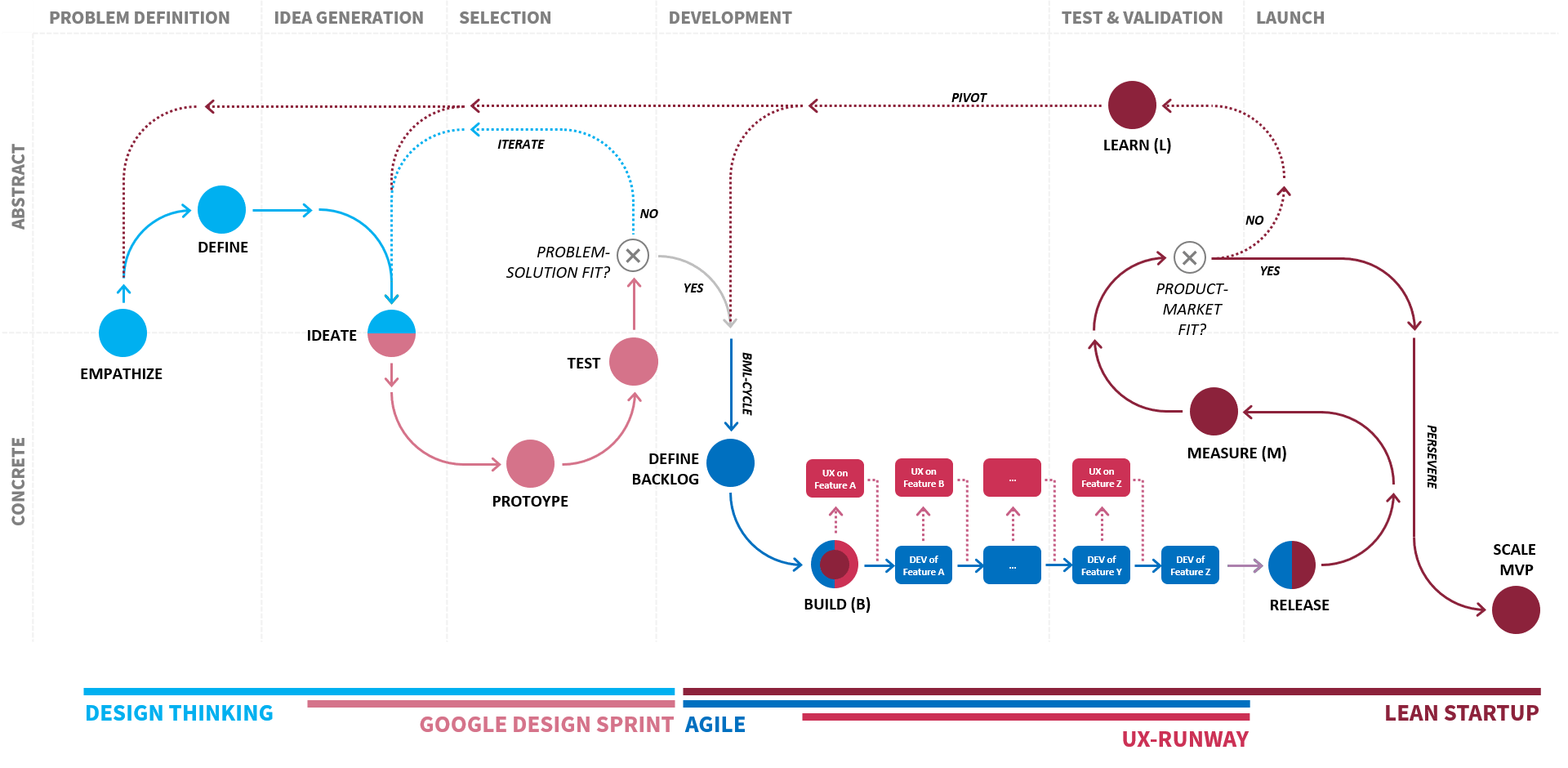Our consulting services
How we work: Within our consulting services we focus on understanding your challenge. While being guided by our meta process, our ultimate goal is to improve any business acitivity by using digital technology. That being said, tasks like analysing an organisation's data, determining information system requirements, defining project objectives and compiling and presenting information form our backlog of work.
Focusing on the first three steps of our meta process, our approach first includes empathizing for your business. As we focus on understanding your challenge, this step becomes very important as it lays the ground for all further work. After the phase of empathizing, we will define a challenge scope while also ideating for ideas to solve it. Finally our way of working concludes in prototyping and testing the idea(s). Below you will find two examples that go into more detail. The last three phases of your meta-process are covered by our development section.
In need of a boost? Don't worry. We are here.
Example I
Refining your challenge
Are you struggling to create a solid foundation for your idea?
Our approach: Within this very basic example of a workshop, we will try to build up a common understanding of the challenge you are facing. This means empathizing for your business, defining and refining your challenge and ideating for ideas. As a result, this collaborative workshop will output a crisp deck summarizing your challenge and some well thought out first ideas on how to solve it.
What does this mean in detail? Empathize, the first activity, is the very base step of how we try to understand clients challenges. Important techniques that often come to action are interviews and observations. In the second phase, clients needs are recorded and converted into problems by techniques like a stakeholder map or the desk research method. The ideation phase then serves to generate radical and alternate solutions. This phase often is implemented by answering various how-might-we questions.
What you could be asking for: S to M-sized Workshops.
(1 Day)
(3 Days)
Example II
Prototyping your ideas
It's time to start realizing your idea. But how?
Our approach: Within this second workshop example, we will prototype ideas resulting from a more indepth ideation phase. This means ideating for additional ideas, evaluating and prototyping them and finally testing them. As a result, this collaborative workshop will output a crisp deck summarizing possible solutions, with an evaluation for each, so that a decision for realization can be made.
What does this mean in detail? Similiar to the above presented example, within the ideation phase, various ideas are generated based on clients challenge in the first step. We then switch into a prototyping mode to actually build prototyps which are further used for evaluation. Finally, the by now built prototyp, is used to generate actual user feedback. Rather than working on a concept level, this workshop format is more of a hands-on type to generate output that might as well be used in future project stages.
What you could be asking for: M to L-sized Workshops.
(3 Day)
(5 Days)
